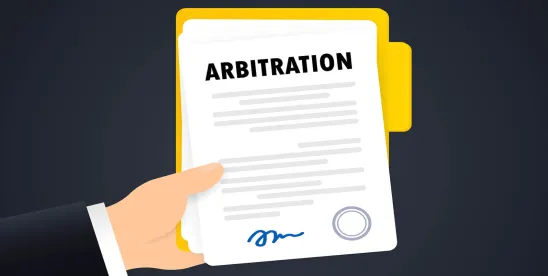Decisions from the U.S. Supreme Court, federal circuit courts, and a California court of appeals addressed multiple aspects of arbitration: What happens to a lawsuit when a court is asked to stay the proceedings pending arbitration, who qualifies for an exemption from the Federal Arbitration Act (FAA), what is a “dispute” and when does it “arise” were all at issue. Together, they highlight the evolving landscape of employment arbitration.
Major court cases
The following cases allowed for continued court oversight of a dispute sent to arbitration, reflect a broader interpretation of the FAA’s transportation worker exemption, navigate when a dispute arises for purposes of deciding whether the EFAA applies, and held certain provisions of an arbitration agreement were unenforceable.
SCOTUS: Smith v. Spizzirri
- Holding: The language in the FAA providing a court “shall on application of one of the parties stay the trial of the action until [the] arbitration” requires courts to stay, not dismiss, actions subject to valid arbitration agreements.
- Reasoning: When a court dismisses an action, the plaintiff has an immediate right to appeal, whereas there is no similar right to appeal the grant of a motion to compel arbitration. By dismissing the action, the district court effectively confers a right to appeal a decision otherwise foreclosed by the FAA.
8th Circuit: Eniola Famuyide v. Chipotle Mexican Grill Inc.
- Issue: What constitutes a “dispute” and when does it “arise” for purposes of applicability of the Ending Forced Arbitration of Sexual Assault and Sexual Harassment Act (EFAA), which was enacted in 2022?
9th Circuit: Ortiz v. Randstad Inhouse Services LLC
- Issue: Whether a warehouse worker falls within the FAA’s “transportation worker exception.”
- Holding: The plaintiff’s job duties were sufficiently connected to the transportation of goods through interstate commerce to trigger the transportation worker exemption. This ruling expands the transportation worker exemption under the FAA to include warehouse workers.
California Court of Appeals: Cook v. University of Southern California
- Issue: Was an arbitration agreement signed by a condition of employment permeated by unconscionability, which could not be severed from the agreement?
- Holding: The following provisions in an arbitration agreement were unconscionable:
- Extending the arbitration agreement to claims beyond the employment relationship.
- Covering third-party beneficiaries.
- Stating that the agreement will survive termination of employment.
Congress
The bipartisan Protecting Older Americans Act, which cleared the Senate Judiciary Committee in May 2024, may further chip away at arbitration. The measure would invalidate pre-dispute mandatory arbitration agreements regarding claims of age discrimination.
Key employer takeaways
The law on arbitration is ever evolving:
- Application of the EFAA is still in flux.
- Broadened interpretation of Transportation Worker Exemption means the FAA may not apply to even more workers, so state laws will apply.
- Courts are scrutinizing the enforceability of employment arbitration agreements, especially in California.
- More legislative carve-outs to mandatory arbitration.



 />i
/>i

